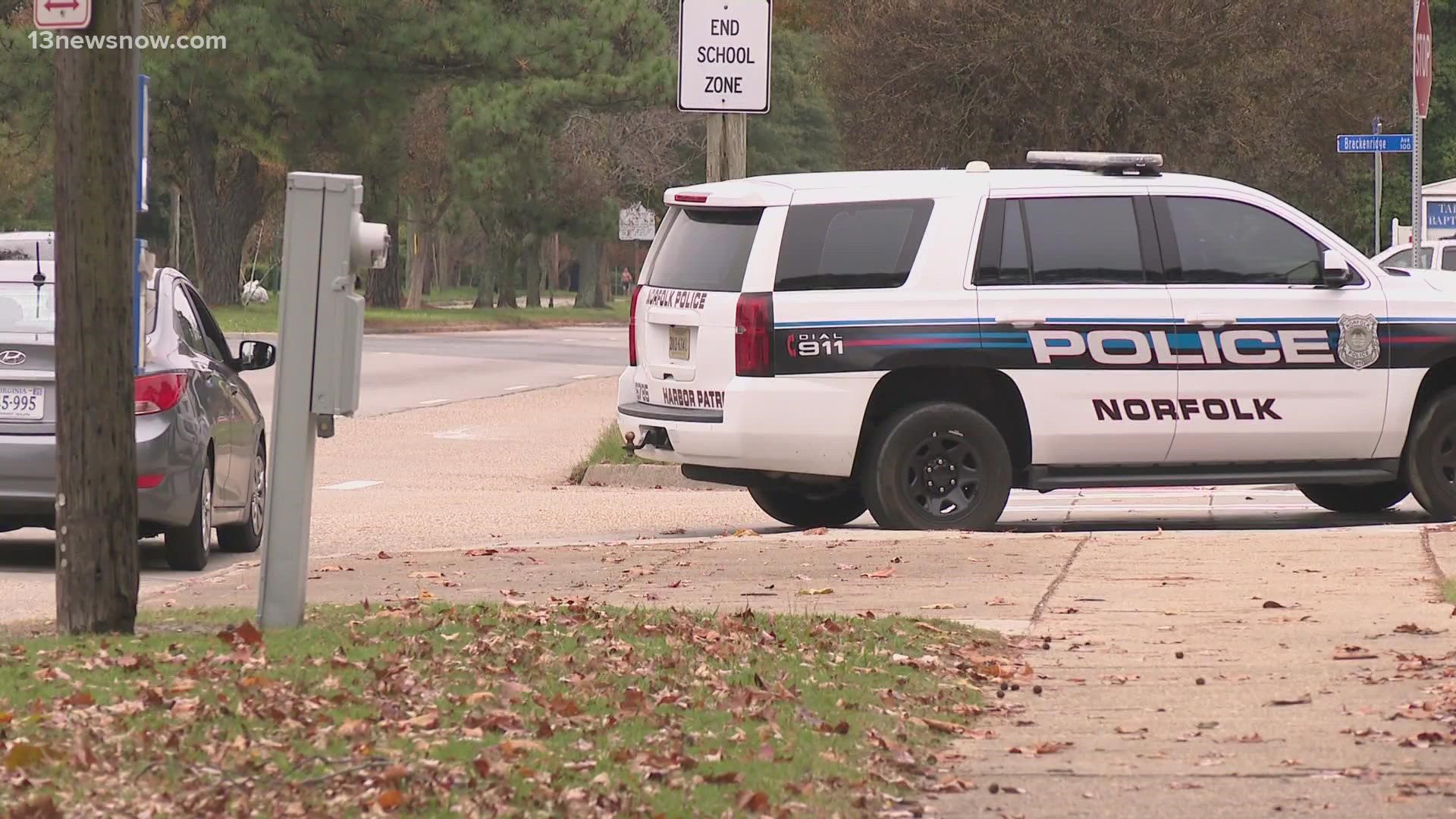NORFOLK, Va. — The number of school threats is growing across the country and right here in Hampton Roads.
Just this week, several schools in the area reported bomb threats.
On Monday, students and teachers were evacuated from seven Hampton Roads schools: Deep Creek High School, Indian River High School, Oscar Smith High School and Western Branch High School, all in Chesapeake, Granby High School in Norfolk, Churchland High School and Manor High School in Portsmouth.
RELATED: Bomb threats reported at schools in Hampton Roads, investigators looking into person behind it
"It causes a lot of stress, it disrupts the learning environment, so it's sad that this is happening. It's almost becoming the norm. I'm not anxious or phased right now because it's almost becoming the norm," said Amanda Keating who teaches French at Granby High School.
On Tuesday, it happened again. Three schools were put on alert: I.C. Norcom High School in Portsmouth, along with Deep Creek High School and Oscar Smith High School in Chesapeake for a second time.
RELATED: Second day of bomb threats reported at several schools across Hampton Roads, North Carolina
Down in North Carolina, Hertford County schools closed Tuesday because of a "potential safety threat" to their campuses.
The threats continued on Wednesday, with Portsmouth Public Schools confirming both Cradock and William E. Waters Middle Schools received bomb threats. Both schools were dismissed early for the day.
Mo Canady said when he worked as a school resource officer in Alabama in the early 2000s, threats like this were rare.
Now, Canady is the executive director of the National Association of School Resource Officers, which trains SROs from all over the country.
"We started to see this nationally about the time school started this year," he said.
The nonprofit research center "The Violence Project" reports the number of school threats during the 2021-2022 school year was five times higher than in typical years.
Canady said there’s no clear answer as to why this is happening more and more.
"I wish I had the answer to that," he said. "It’s becoming clearer to me by the day that for the most part, this is a coordinated attack, if you will."
Real or not, Canady said those threats and evacuations have consequences.
"If you’re making that kind of threat, that’s still a criminal offense," he said. "Until we know that this is a false report, we have to respond as if it’s real."
Not only do they disrupt the school day, but for those moments of uncertainty, they can affect mental health.
"Whether that belief lasts 30 seconds or 30 minutes, there’s still trauma within that," Canady said.
To move forward, Canady said communication between SROs and parents, teachers, students and local law enforcement is vital.
He also said it’s so important for school divisions to have a plan and collaborate with outside agencies to assess the situation as quickly as possible, which most do.
"It was around 2001, that we began to see school districts really address the policy around how they're going to react when a bomb threat is phoned in," Canady said.
He said having well-trained SROs in schools makes a big difference in situations like these. When those officers build strong relationships with students and parents, they will likely feel comfortable talking to them about anything they've heard or seen online regarding threats. They're also an advantage from a tactical perspective.
"Whether it's a bomb threat or an active shooter threat, again that's falsely reported, having that carefully selected, specifically trained SRO there on the scene at the school to kind of begin that investigative process and really be able to diagnose more clearly what's going on can be invaluable," he said.
This isn’t the first cluster of school threats in Hamptons Roads recently.
Last month, more than half a dozen schools received false reports of an active shooter.
"This issue of the false calls of an active shooter, that's a new phenomenon," he said.
After Monday's false bomb threats, investigators with the local fire departments say they don't want students to take this type of threat lightly. A captain with the Chesapeake Fire Department said this crime is considered a Class 5 Felony in Virginia.
This means if the person responsible is convicted of the crime, that person faces up to 10 years in prison. The suspect could also face a $2,500 fine in court.
To further show the seriousness of the crime, other Class 5 felonies include voluntary and involuntary manslaughter, extortion, computer fraud ($500 or more), soliciting prostitution of a minor (under 16), and credit card forgery.
Even after serving time for a felony, there are long-term consequences for a person with a permanent criminal record like difficulty finding employment, being approved for loans, or securing a rental agreement for an apartment.
In some states, you can lose your right to vote, serve on a jury or run for public office. Even a misdemeanor conviction can limit your ability to travel to other countries.

